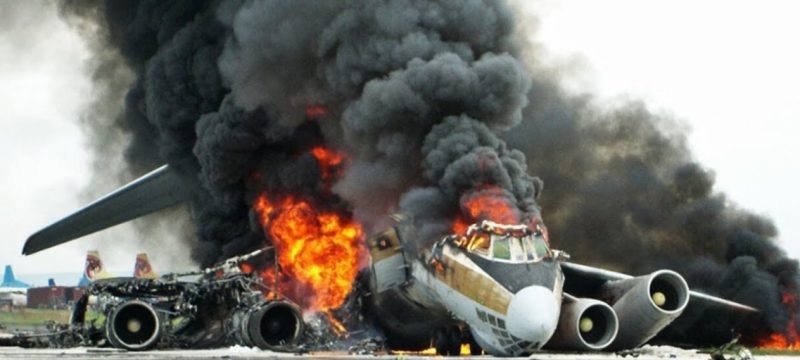A plane crash is one of the most feared accidents in the world of travel. While flying is considered one of the safest modes of transportation, accidents, when they happen, often make global headlines. Passengers and families seek reliable updates, while aviation experts work to uncover the reasons behind each incident.
In this article, we’ll look at the latest plane crash news, explore real incidents, explain the causes behind aviation accidents, and discuss how the industry continues to improve safety.
Latest Plane Crash News
On September 8, 2025, a tragic plane crash occurred near Yeelanna, South Australia, claiming the life of the pilot. This small aircraft accident has once again raised questions about aviation safety in rural areas where emergency responses may take longer.
Just a few days earlier, on September 5, 2025, the Bemidji Regional Airport in Minnesota conducted a plane crash simulation exercise. Local authorities, firefighters, and medical staff participated to practice how to respond to a passenger plane accident. These drills are vital for ensuring readiness if a real disaster occurs.
Why Do Plane Crashes Happen?
Despite advancements in aviation technology, accidents still occur due to several factors:
- Mechanical Failure: Even with strict maintenance, technical issues can sometimes cause accidents.
- Human Error: Pilot mistakes remain one of the leading causes of crashes.
- Weather Conditions: Storms, fog, and strong winds often play a role in accidents.
- Bird Strikes: Birds hitting aircraft engines have led to emergencies in the past.
- Other Factors: Rare cases include sabotage or mid-air collisions.
Understanding these causes helps both passengers and airlines learn how risks can be reduced.
How Safe is Flying Today?
Statistics show that air travel is far safer than driving. According to the International Air Transport Association (IATA), the chance of being involved in a passenger plane accident is extremely low, about one accident per several million flights.
This means while plane crash news makes headlines, the actual likelihood of being in one remains very small. Most flights land safely, and improvements in technology continue to make air travel more reliable.
How Authorities Handle Plane Crashes
When a crash occurs, investigators move quickly to uncover the truth. The National Transportation Safety Board (NTSB) in the United States and similar bodies worldwide lead these efforts. They:
- Recover the black box (flight data recorder).
- Examine wreckage and debris.
- Interview witnesses and crew (if available).
- Publish a final report to prevent future accidents.
Such investigations can take months or even years, but they are crucial for improving safety.
Psychological Impact of Plane Crashes
Beyond physical damage, the emotional toll of a plane crash is immense. Families suffer sudden loss, and survivors often experience trauma. This is why airlines and governments also provide counseling and mental health support after major accidents.
Public fear of flying often rises after a big plane crash makes headlines. However, aviation experts stress that every accident teaches valuable lessons that strengthen safety worldwide.
How Airlines Prepare for Emergencies
Airlines and airports regularly conduct simulation drills, like the one in Bemidji, to prepare for emergencies. These include:
- Evacuation practice for passengers.
- Fire and rescue training.
- Coordination between airlines, airports, and medical teams.
Such exercises ensure that if a real passenger plane accident occurs, responses are faster and lives are saved.
Lessons Learned from Past Plane Crashes
Looking at history, many safety upgrades came after tragic accidents:
- Improved cockpit communication systems after pilot miscommunication led to crashes.
- Enhanced radar and weather tracking to avoid storms.
- Stronger aircraft engines to withstand bird strikes.
- Better runway safety systems to prevent overruns.
Each accident shapes the future of safer skies.
Final Thoughts
A plane crash is always heartbreaking, but it also reminds the world of the importance of aviation safety. While accidents cannot be fully eliminated, technology, strict regulations, and constant training help make flying one of the safest ways to travel.
Staying informed with the latest plane crash news not only keeps travelers aware but also builds trust in how aviation authorities and airlines handle emergencies.
For readers curious about other fascinating discoveries, check out this detailed piece on what dinosaur has 500 teeth – meet Nigersaurus.
FAQs
Q. What is the most recent plane crash?
The most recent reported crash occurred on September 8, 2025, in Yeelanna, South Australia, where a light aircraft went down, killing the pilot.
Q. How often do plane crashes happen?
Plane crashes are extremely rare. Globally, commercial flights are among the safest forms of travel, with only a handful of accidents each year.
Q. What causes most plane crashes?
The main causes include human error, mechanical failure, and severe weather. Investigators study every crash to prevent future accidents.
Q. Is it safe to fly after hearing about a plane crash?
Yes. Despite tragic news, statistics show that flying remains one of the safest ways to travel compared to driving or other transportation.









